Blog / Europe's Futures
Serbia’s Protesters Are Standing Alone—And Winning
On November 1 last year, the canopy of the newly reconstructed railway station in Novi Sad, Serbia’s second-largest city, collapsed, killing 15 people. Beyond being a tragic infrastructure failure, the incident has come to symbolize the unravelling of the mafia-like patronage system that has long defined Aleksandar Vučić’s regime. The disaster has sparked the largest anti-government protests in Serbia since the fall of Slobodan Milošević in 2000, posing the most serious challenge to Vučić’s 13-year grip on power. The students and citizens who have taken to the streets see the collapse as a direct result of high-level corruption and are demanding transparency, accountability, and justice from those responsible.
On the Home Front: Ukraine's War Economy and the Spirit of Defiance
These are challenging times for Ukraine’s resistance to the Russian invasion. Despite the success of the Kursk offensive, not only does the attritional war on Ukrainian territory still favour the aggressor, but a foreign power, North Korea, is mobilizing troops to support the Russian war effort, the first such state to do so. Ukraine’s Western allies are divided over the country’s “victory plan” and scrambling to prepare for a second Trump White House. Its declared intention to end the war in “24 hours,” regardless of what that means for Ukraine’s fight for freedom and the occupied territories, now casts a long shadow over the war’s fate.
Europe Under Trump
Europe has historically been torn between Transatlanticism and strategic autonomy. This is the main reason for which it is unprepared for the arrival of Donald Trump to the White House on 20 January 2025. The risk is that the choice will no longer be available.
Citizens’ Assemblies: Democratic Responses to Authoritarian Challenges in Central and Eastern Europe
In recent years, the global democratic landscape has faced unprecedented challenges, with authoritarianism on the rise and democratic norms increasingly under threat. Central and Eastern Europe finds itself at the forefront of this troubling trend, experiencing a resurgence of illiberalism weakening democratic institutions and eroding civil liberties. Against this backdrop, there is an urgent need for innovative democratic mechanisms that can effectively counter these authoritarian challenges and offer new ways to give people a more meaningful role in decision making. Citizens’ assemblies, a form of deliberative democracy, have emerged as a promising approach. These assemblies bring together randomly selected citizens to learn about contested issues, deliberate and develop collective recommendations.
Reinvention of Pro-Russian Politics in Ukraine without Russia: Old and New Adversaries of the EU Integration
As Ukraine’s usual electoral cycles are disrupted by the war, and no major power shifts are on the horizon, the political landscape of the country is nevertheless changing. The parties with a pro-Russian agenda are de jure banned since 2022; however, it would be mistaken to write both the actors and the expectations of their voters off. This essay questions several assumptions regarding "pro-Russian" political movements, such as their inevitable ideological and financial dependence on Russia, and the deceptive dichotomy of "pro-Russian" and "pro-Ukrainian" politicians, which used to be reflected on in bipolar terms. This dichotomy ignores the vague, unsteady body of ideas that has been emerging even before the 2022 invasion, and the gravitation of the former "pro-Russian" voters toward these ideas. Unlike the old agenda, this new one is rather inclusive and vocally anti-Kremlin. It may become more popular as more mistakes are made by both the EU and Ukraine on the way to Ukraine’s EU integration.
EU Enlargement to the Western Balkans: Where There Is a Will, There Is a Way
Russia’s brutal invasion of Ukraine has exposed the weaknesses in the European security architecture propelling the geopolitical importance of the European Union’s enlargement policy to the top of the EU agenda. Ukraine has emerged as a pivotal force in the enlargement process, serving as a catalyst for renewed discussions and strategic shifts within the EU.
Northern Ireland: The War Ended, but the Real Peace Never Really Began.
After a week spent in Ireland, both in the South and North, the nature of the Irish problem suddenly appeared different to what is generally narrated.
The End of the Near Abroad
By November 2022, nine months into Russia’s war of aggression in Ukraine, tens of thousands of middle-class Russians had fled their homeland to make new lives in Central Asia. A chocolate company in Kazakhstan chose the moment to release a commercial. The viewer sees a curly-haired young Russian backpacker struggling wearily across a grassy steppe landscape, dragging a suitcase. A man in traditional Kazakh dress on horseback rides up and presents the backpacker with a bar of chocolate. “What is it?” asks the young Russian. “The taste of freedom,” replies the proud Kazakh.
The Enduring Legacy of Violent Conflict
The current Europe’s Futures Fellows enjoyed a visit to Ireland and Northern Ireland, 15-19 April 2024. It was an immense honor to have them here – and a timely one. Ireland is at something of a hinge point in terms of its democratic constitution, as testified by both the shocking rise of anti-immigrant violence and rising expectations of Irish unification post-Brexit. There is a strong sense in both jurisdictions on the island that liberal democracy is under pressure.
About the Walls or Lessons From Northern Ireland
The two of them actually look quite similar. Both are middle-aged, robustly built. True, the first has graying hair and glasses, and he is wearing a red-and-white keffiyeh around his neck and a badge on his jacket lapel with the Palestinian flag, below which is a green-white-orange badge unmistakably revealing his republicanism. The second is perhaps a bit younger, with dark hair and a well-groomed goatee, wearing no indicators of his own political affiliations but strangely enough—all things considered—with a sign on his shoulder: Coiste - Irish Political Tours.
Austrians Already Have the Answer to Their Democratic Challenges – Will They Use It?
To address increasing polarization before the upcoming elections, Austria should tap into its superpower—its own citizens.
Democracy’s Climate Problem: Beyond the Bounds of Territory and Time
Democracy has a climate problem. Democratic political systems are based on the premise that governments derive their mandate from electors who live in a particular time and place. Representative democracy, as it has evolved since the nineteenth century, relies on the principle that governments are elected to serve the interests of the voters within a national constituency who are living right now. But climate change and environmental degradation go well beyond national borders, and their effects will be greater on future humans than the ones living now. Our familiar methods of creating democratic legitimacy were not designed for this challenge.
The Promise of European Integration: Breathing New Life into the Settlement of Bilateral Disputes
What is the impact of European integration in tense situations in Europe’s periphery? There is extensive literature on Europeanization and the influence of European integration in a number of public policy areas. But curiously little research attention has been paid to how the prospect of membership and the process of accession impacts on the dynamics of the settlement of disputes in Europe’s immediate neighborhood. This paper seeks to shed light on this often overlooked issue. We offer insights into how the membership perspective increases the chances for the settlement of a dispute. We also aim to show that in the context of this process power imbalances still maintain a central role, and they may even be rearranged and renegotiated as a result of the disputing states’ different relationship to European integration, i.e. ,whether a state is already a full member of the European Union or simply an aspiring one, and as a result of being on the receiving end of various conditionalities.
No International Relations Theory Justifies Calls for an Early Peace in the Russo-Ukrainian War
None of the major International Relations schools of thought can logically justify an end to the Russo-Ukrainian War that includes even a partial Russian occupation, writes Veronica Anghel.
Break Point: Scenarios and Regional Implications of the Russo-Ukrainian War
Following Russia’s full-scale aggression against Ukraine, ongoing for almost 600 days with no prospect of a peaceful resolution, Europe is at a geographic breaking point. Russia’s aggression has literally broken the EU’s eastern neighbourhood, taking down the European Neighborhood Policy (ENP) along with it. Due to its remarkable resilience, Ukraine has deprived Russia of strategic victory. However, the ensuing war of attrition also renders its own destruction, as symbolized by the Khakovka dam.
How Russia’s Full-Scale Invasion of Ukraine Transformed Europe
When Ursula von der Leyen moved into the Berlaymont four years ago, she declared that hers would be a “geopolitical” Commission. No longer was it just a “political” Commission, like her predecessor Jean-Claude Juncker had dubbed his executive power. Given the growing rivalry between great powers and the exquisitely transnational nature of the major challenges of our age, Europe had to become a “geopolitical” player worthy of the name. Little did we know in 2019 that the years that followed would be marked by a global pandemic and a nuclear-armed power's brutal invasion of its neighbor: by far the two greatest geopolitical earthquakes since the end of World War II. With the pandemic over and Russia’s invasion of Ukraine well into its second year, as the EU enters the last lap of its political-institutional mandate and heads towards European elections, what can be said of the Union’s geopolitical ambitions?
EU Enlargement and Europe’s Future. How to Revive One of the EU’s Most Successful Policies
In an ironic twist of history, Russia’s devious attack has brought Ukraine closer to European Union membership than ever. Russia’s unprovoked assault has left even the EU’s enlargement-sceptic member states no choice but to declare their support for Ukraine’s ambitions to join. French President Emmanuel Macron stated on 1 June this year that “we must remove the ambiguities and agree to have a Union which is enlarged, which is geopolitical.”
One More Time with Feeling (Or Can Europe Talk to Its Youth)
“Young people are not only the future, they will be deciding factor in the next elections.” Thus spoke Roberta Metsola, president of the European Parliament, on her Instagram account at the end of July 2023. Above this quotation was the photograph of a smiling Metsola taking a selfie with a smiling young woman. Scrolling down the account of the Maltese politician, a member of the conservative European People's Party, you would have suspected that she is already campaigning heavily for the next EU elections in June 2024, and that in her campaign the main target is youth. You would probably be right.
Chinese Influence in the Western Balkans and Its Impact on the Region’s European Union Integration Process
Valbona Zeneli is the Chair of Strategic Engagements at the George C. Marshall European Center for Security Studies, a Non-Resident Senior Fellow with the Atlantic Council, and a Europe’s Futures alumna of the Institute for Human Sciences (IWM) and ERSTE Foundation
The Western Balkans has seen a significant expansion of Chinese influence over the last decade, in line with Beijing’s geo-economic and diplomatic vision of the Belt and Road Initiative (BRI), and in the broader strategic context of China-EU relations. A key tool in promoting engagement with the five Western Balkans countries (excluding Kosovo) has been the “16+1” initiative with Central and Eastern European countries, established in 2012, and later tied to support the BRI.
It’s a Package Deal! Reforming and Enlarging the European Union in a Contested World
The authors are members of the Europe's Futures Alumni Network of the IWM and ERSTE Foundation.
“Delay always breeds danger; and to protract a great design is often to ruin it.”
Miguel de Cervantes
In the Shadow of the Russian Invasion of Ukraine
The Russo-Ukrainian War has shaken the foundations of Europe’s security architecture set by the Helsinki Final Act, 1975
A Grand EU Bargain, the Four Freedoms and Merit: How to Fix the European House and Make Room for New Members
“The reality of the EU accession process today resembles a bus with no wheels.”
Gerald Knaus
Halfway Through: Competing Powers in the Balkans
On 8 January 2020, Istanbul hosted the launch of the TurkStream pipeline. It was a landmark occasion. The metropolis straddling the Bosphorus welcomed the Russian President Vladimir Putin, whom many in the West had come to view as a doppelganger of Turkey’s own strongman, Recep Tayyip Erdoğan. Back in December 2014, the power duo had originally proposed the plan for a natural gas pipeline running under the Black Sea up to the Turkish coast and from there to the Balkans and Central Europe. TurkStream has come, in part, as a rebuke to the European Union (EU). Brussels’ regulatory disputes with Gazprom compounded by the Ukraine crisis and the sanctions against Russia had dealt a mortal blow to South Stream, an earlier pipeline project. Now Putin and Erdoğan capitalised on their partnership, reviving it after the failed coup in Turkey in July 2016.
People of the Mountain. Or Who Plants the Forests, Picks the Strawberries, Builds the Houses and Sews the Clothes of Europe.
In the 2nd century, the Roman emperor Trajan fought the Dacians in the eastern Balkans. To mark his victory, a city was built on the mid-Mesta River and named Nikopolis ad Mestum. The fertile basin had long been home to the Thracians but this 'city of victory on Mesta' signalled that hegemonic power was here to stay. The people of Mesta would have to negotiate with it for the next two thousand years.
Was ist zu tun? Der Krieg, der Westbalkan und die EU
Anlässlich der bevorstehenden Sitzung des Europäischen Rates veröffentlichen Europe's Futures Fellows und Alumnis ein Positionspapier mit Lösungsansätzen.
What is to be done? The war, the Western Balkans and the EU
In view of the upcoming summit of the European Council, Europe’s Futures Fellows and alumni propose six fixes for the enlargement process.
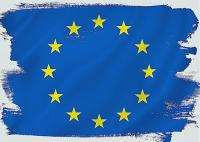
A New Bold Vision for Europe
Following Russia’s unprovoked and unjustified invasion of Ukraine in late February, a new bold vision for the European Union is needed. This watershed moment has put the European project to test as it’s clear the proliferation of crises in the last decade has undermined the unity of the bloc. Therefore, it’s time for the European Union (EU) to face the future with strategic resolve and visionary determination. It should focus on playing a role in restructuring the global security architecture, embrace the struggles between democracy and autocracy, and be flexible enough to deal with new challenges that will undoubtedly arise as the world order shifts. The EU’s current mechanisms were built to maintain peace after the Second World War, new ones must prevent widespread conflict and preserve democracy in a very different looking world.

New Policy Brief Published
Look Who’s Talking! Telling Europe’s Story in the EU Capital
Policy Brief, March 2022 (Publication download link)
Dahrendorf Programme at the European Studies Centre, St Antony’s College, University of Oxford, in cooperation with the ‘Europe’s Futures-Ideas for Action’ project at the Institute for Human Sciences, Vienna
Europe is facing a battle of the narratives that will shape our future. In this brave new world, a compelling narrative will be paramount for the survival of the European project.
Poland's Interrupted Transformation
Poland’s membership of the European Union has exposed the immense difficulties a post-communist country faces in coming to terms with a transformation that affects the perception of the past, the journey towards democratization and the meaning of sovereignty.
Missing Pages of “European History”
Despite Austria being home to many people who have a Western Balkans background the Yugoslav Wars of the 90s are rarely being covered in history classes of Austrian secondary schools. The causes are multiple. History teachers have little time to teach a lot about history. Many of them feel they do not know enough about this subject to discuss it with their students and react adequately to possibly conflicting opinions of students or even parents. There is a lack of teaching materials in the German language. However, many teachers interviewed for this article said they would like to cover the Yugoslav Wars and would like to further educate themselves on them. They asked for access to quality sources and teaching materials. Furthermore, they believe the students would be highly interested in the topic. In their professional opinion, these wars show certain patterns that occur with most ethnic and religious conflicts. Finally, they said that it is vital for the students to understand that peace cannot be taken for granted. This article is not a scientific paper based on sound scientific methodology. It is the result of a fact-finding mission in order to provide analysis of the status quo and policy recommendations to make it easier for teachers to cover the Yugoslav Wars in class.
Gauging Democracy: The Case of Serbia
A quick glance at any methodology measuring the quality of democracy in Serbia since the Serbian Progressive Party (SNS) and its allies took power in 2012, reveals a marked deterioration.

The Chinese Gift that Keeps on Taking: The Western Balkans
The Western Balkans has seen a significant expansion of Chinese influence over the last decade, in line with Beijing’s geo-economic and diplomatic vision of the Belt and Road Initiative (BRI), and in the broader strategic context of China-EU relations.
Path to Democracy in Belarus
Sviatlana Tsikhanouskaya Offers Her Take on the Democratic Struggle
A Political Gamble On Tragedy
What does the crisis on the border with Belarus mean for Polish domestic politics and for its European policy? No matter how many ways Polish allies of Viktor Orban try to imitate his tactics, it always turns out at best ineffective and often outright counterproductive. The same happens when Warsaw has tried to reproduce Hungarian narratives and strategies about border protection. At first, it looked as if the government could consolidate power by flexing xenophobic muscles, but eventually, it lacked the innovative momentum and consistency in communication to score precious points in public opinion polls this way.
The EU’s Approach Towards Enlargement is Bad PR
The European Union’s way of dealing with the question of enlargement both with the Western Balkans and in a different way also with Turkey contributes to how the EU is perceived as a global actor. It contributes to our image in the world. Many factors that are relevant for the EU’s performance and ability to effectively act on a global stage can be observed when looking at how the EU is dealing with the Balkans and Turkey. The issue of enlargement rips the mask off much deeper underlying problems the European Union has.
Europe’s New Territorial Politics or the Uneven Spaces of Living, Breathing, Moving, Dying
Europe’s political geography is famously uncertain and contested. The luxury and burden of being the only continent to have given itself its own name is that its borders are undefined, and European history as a whole - both ‘internally’ and ‘externally’ – can be narrated as an infamous series of actions claiming, rejecting, defending or dividing lands, roots, cultures, names and symbols which all potentially can be associated with it. To tell such a history we would certainly need at least two narrators, a ‘European’ and a ‘non-European’, if only it were possible to identify a priori who is who. Riven-through with this inescapable history, acting in Europe’s name always risks taking sides, but also risks the apparent fragility of irresolvable internal contradictions, the presence of apostates, renegades and rebels in the ranks. Is there some way of thinking territory beyond these military metaphors?
Democratic Breakdown and the Rise of Right-Wing Extremism in Slovakia: Interrelated Trends?
The Slovak Republic is a historically successful example of post-communist transition. The process of democratization in Slovakia began after the fall of communism in 1989, during the period when the Czech Republic and Slovakia formed the Czechoslovak state (1989–1992), and continued and was completed after 1993, when an independent Slovak state was established.
A Europe That Protects in Times of Geopolitical Turmoil
The EU’s Common Foreign and Security Policy is one of the most popular areas of European integration. Eurobarometer polls from the past two decades show that clear majorities of EU citizens have consistently been in favour of closer foreign policy cooperation. Approval rates have been even higher when it comes to European security and defence cooperation. This stable support, regardless of changing global developments, indicates that citizens consider preserving security and stability as core tasks of the European project.

EU-Western Balkans relations: It’s not that complicated
Whether to place or not the word “enlargement” in the Brdo Declaration of the latest European Union-Western Balkans Summit certainly captured the media’s attention. A compromise was finally reached to balance the wording of the EU’s on-going “commitment to the enlargement process” with the EU’s “capacity to integrate new members”. Charles Michel, the President of the European Council, acknowledged what has been known and publicly discussed for sometime, that, “there is an ongoing debate between the 27 on the Union’s capacity to integrate new member states.”
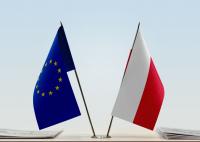
It’s a long way to “Polexit”
The decision of Poland’s government-controlled constitutional court to reject EU authority has raised the spectre of “Polexit”. But it might also have awakened Poland’s pro-Europe camp, and even paved the way for its own demise.
The 30 Years’ War. Media in Eastern and Central Europe Since 1989
Sometime in the halcyon days of the very early 1990s, before war convulsed Bosnia and spread turmoil across the Balkans, a few Bulgarian friends and journalist colleagues were at table in Sofia, in the shadow of magnificent Mount Vitosha. Perhaps it was the influence of the Alpine landscape, or the prospect of turning a profit out of their fledgling efforts in the then Brave New World of democratic media. In any event, as one of those present now recalls, they fell to debating how long would it take to "become Switzerland." Six years, maybe eight at most, was the widely accepted horizon for a generation impatient to see changes.

Identity Provisions in Agreements: Medicine that Cures or Kills?
Identity provisions integrated in agreements are only the first step in a long and painful process for the resolution of enduring Balkan disputes. Including complex identity and heritage provisions in agreements that settle bilateral disputes is a necessary primary stage, but it may very well prove to be a double-edge sword – the medicine that could kill rather than cure. The recipe may be for political agents of change to be prepared in advance for the maelstrom that is likely to follow. And for grassroot agents of change to be given space to do the unpopular groundwork of building trust. The trials and tribulations of the recent agreement between Greece and North Macedonia are an illustrative example and serve to offer lessons for other disputes and conflicts.
Identity Provisions in Agreements: Medicine that Cures or Kills?
Identity provisions integrated in agreements are only the first step in a long and painful process for the resolution of enduring Balkan disputes. Including complex identity and heritage provisions in agreements that settle bilateral disputes is a necessary primary stage, but it may very well prove to be a double-edge sword – the medicine that could kill rather than cure. The recipe may be for political agents of change to be prepared in advance for the maelstrom that is likely to follow. And for grassroot agents of change to be given space to do the unpopular groundwork of building trust. The trials and tribulations of the recent agreement between Greece and North Macedonia are an illustrative example and serve to offer lessons for other disputes and conflicts.
Germany Needs Change. Europe Needs Integration.
Europe's Futures Visiting Fellow, Judy Dempsey, in this post, discusses the current political situation in Germany, and its outlook for the future of Europe.
Chancellor Angela Merkel leaves office in September. Her successor needs to create a foreign policy that is strategic in outlook, breaks with the status quo and sets a new compass for the European Union and its neighbors.
Welfare in Post-Quarantimes: Life and Work after the Corona-Camp
Reflections on Corona – an interview
Unblocking the Accession Path of the Western Balkans into an EU in Transition
In its 2016 Global Strategy, the EU outlined its worldview, including its foreign policy objectives and challenges. Broadly, the EU’s Global Strategy stated that it sought to make Europe stronger: “an even more united and influential actor on the world stage that keeps citizens safe, preserves our interests, and upholds our values.” To achieve this goal, the EU committed to strengthening the resilience of states and societies by supporting good governance, accountable institutions, and by working closely with civil society.
The End of the West and the Future of History
The End of the West, whether as a real or perceived phenomenon, is one of the reasons for the recent success of populists across the world. We are facing the end of the “Big Idea” that was able to contain—up to the point—radical ideologies from winning in Europe and pacify internal divisions between and within the states.
How Foreign Policy Goes Tribal in the Western World and What to Do about It
According to the old-school rulebook of traditional mainstream politics, you are likely to lose if you receive support from a non-allied superpower – due to the suspicion of representing foreign interests. In the era of tribal politics, you should not be afraid, though. How can extreme forms of polarization eat up traditional norms in foreign policy and make a hero out of the intruder? This piece explains it using the case study of Russian foreign intervention in elections. What is the way out? Tribalism can be reduced if there is some political will from above or below.

Europe and America under the Biden Administration
As the new Biden administration takes over on 20 January, Europe is brimming with expectations of what the next chapter in relations with the US will be like. There will be few tears shed for Trump et al., though the leaders in Poland, Hungary or Slovenia made no secret whom they were rooting for in the presidential race. The new occupant of the White House comes on a promise of restoring normalcy in transatlantic ties. He is kneejerk multilateralist, believes in the value of traditional alliances, and has already made it clear that issues such as climate change, a shibboleth to Europeans, would be a priority. At the same time, there is the Emmanuel Macron school of thought. If a handful of voters in Wisconsin and Michigan elected Trump, a disruptor extraordinaire, in 2016, what rules out a scenario where another populist America-firster is propelled to power again in the near future? Biden or no Biden, Macronistas argue, the European Union should invest into strategic autonomy. To prosper in a growingly insecure world, Europe needs to be able to fend for itself.
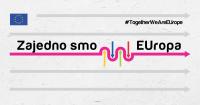
Geopolitical Europe Should Prove Its Mettle in the Balkans
In 2006, Javier Solana, the then head of the European Union’s (EU) diplomacy, proclaimed that Europe’s mission was to become “a global power, a force for good in the world.” Just two years before the economic meltdown, the EU, gazing at the world through rose-tinted glasses, pledged to transform its neighbourhood into a “circle of friends.” Today, those rose-tinted glasses have largely been cast aside: With the COVID-19 pandemic still raging, a looming migration crisis driven by the “ring of fire” beyond the EU’s borders, and the global rise of authoritarianism, most Europeans look at the international arena with angst. Notwithstanding this grim reality, the EU’s goal remains the same as what it was 15 years ago. Like its predecessors, today’s EU Commission under President Von der Leyen aspires to be “geopolitical” by projecting the EU’s interests and values onto the world. The key difference today, however, is that more than anything, the Trump presidency has made Europeans realize that unconditional reliance on the United States is a thing of the past. Hence, the EU seeks to claim its spot as a bona fide global player.

Western Balkans - Has the time come for the US to support European hegemony?
There is no doubt that the election of Joe Biden represents a welcome return to normality in international relations. Nevertheless, because honesty compels us to admit that his predecessor Donald Trump was ultimately less a bringer of change and more the product of an era already beset by rupture and disorder, the "normality" of the future transatlantic entente needs to be interrogated. In that respect, the Western Balkans—that "geostrategic investment" advocated by the European Union since its 2018 strategy [1]—could become a benchmark for rebuilding the relationship between Washington and Brussels, as long as both partners look towards the future of the region rather than simply revisiting the past.
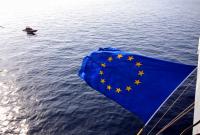
Europe Must Act, not Bet, on its Future
The European Union will be unable to act as a geopolitical player until all the member states share the same threats, challenges and values.

Socially Distanced but More Vocal? The Corona Crisis and Political Participation
Forced through by the pandemic, new factors and trends in politics are shaping novel futures for Europe. In Tryptich Europa, a series of texts, our Europe's Futures project partnered with prominent European thinkers Milica Delević, Olivier Fillieule and Mark Leonard in attempting to capture some of the immediate changes to the political landscape.
Inequalities, the role of the state, upholding of rights, digitalization and public health policies are some of the factors influencing trends in political participation in Europe and its extraordinary current political, social and economic predicament.
In a new addition to Tryptich Europa series, Milica Delević argues that it has become clear to citizens that the cost of not participating in the political process in their countries is considerable.

Mechanical Lions and Potemkin Villages: Why Is Montenegro Different from Belarus?
For the rest of the Western world, Alexander Lukashenko, the President of Belarus, is the “last European dictator.” For most citizens of Montenegro, it is (or better was) their President Milo Đukanović who governed the Balkan country for some three decades. He was first elected in 1991 and ruled undisputedly until 30 August 2020, when his party, the Democratic Party of Socialists (DPS) lost its majority in the parliamentary elections. Although the DPS won the greatest number of votes, the three opposition parties, For the Future of Montenegro, Peace is Our Nation, and Black on White, came together to form the new government on 31 August, ousting Đukanović.

Western Balkans Diaspora: Untapped Potential and Asset for the Region
It is not an exaggeration to say that the Western Balkans future relies on the participation of its diaspora in their countries of origin. The diaspora’s potential to creatively introduce to their country of origin the experiences, knowledge, networks, and visions gained abroad is enormous and arguably the key to the region’s success. Having benefited from opportunities while working abroad, most diaspora members still have a strong commitment to their homeland, willing to share their knowledge and experience with their fellow citizens.
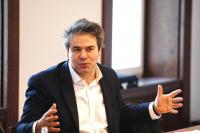
Geopolitical Europe in Times of Covid-19
Forced through by the pandemic, new factors and trends in politics are shaping novel futures for Europe. In Tryptich Europa, a series of texts, our Europe's Futures project partnered with prominent European thinkers Milica Delevic, Olivier Fillieule and Mark Leonard in attempting to capture some of the immediate changes to the political landscape.
As international relations shift from rules to power and the USA’s focus pivots toward Asia, the foundations of the European values-based conception of order are being challenged.
Opening the Tryptich Europa, Mark Leonard analyses options that could help Europe strengthen its position, prosper and maintain its sovereignty in a Covid-19 world of geopolitical competition.
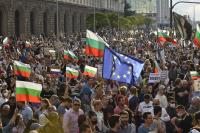
Lessons Learned from Bulgaria’s Democratic Defects
It has been nearly a month that Bulgarians have now been protesting. Sofia along with other major cities across the country see daily rallies demanding the resignation of Prime Minister Boyko Borisov and Prosecutor General Ivan Geshev. They are bound to continue. Borisov refused to step down and hand over his post to a technocrat hailing from within his own party, Citizens for European Development of Bulgaria (GERB). Then, in the wee hours of September 7, police forcefully cleared impromptu camps and barricades set up by the protesters. Borisov and his coalition partners from the far-right United Patriots alliance are putting out a fire with gasoline.

The Power of Mythmaking
Milan Kundera in his seminal essay "Tragedy of Central Europe" wrote: By virtue of its political system, Central Europe is the East; by virtue of its cultural history, it is the West. But since Europe itself is in the process of losing its own cultural identity, it perceives in Central Europe nothing but a political regime, put another way it sees in Central Europe only Eastern Europe. (…) Central Europe therefore, should fight not only against its big oppressive neighbour but also against the subtle, relentless pressure of time, which is leaving the era of culture in its wake. That is why in Central European revolts there is something conservative, nearly anachronistic: they are desperately trying to restore the past, the past of culture, the past of the modern era. It is only in that period, only in a world that maintains a cultural dimension, that Central Europe can still defend its identity, still be seen for what it is.

Milosevic’s Spies still Guard the Fallen Serbian Regime’s Secrets
Twenty years after Slobodan Milošević's authoritarian regime collapsed, its security service spies have yet to surrender the files that would shed important light on its crimes.
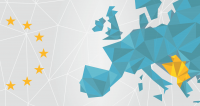
The New EU Budget and Recovery Fund: A Positive Omen for the EU Enlargement Process?
After five days of intense negotiations and amid fears of a forceful comeback of Covid-19 in a number of EU Member States, the heads of state and government of the 27 Member States reached a political compromise on a generous and much-needed recovery fund to deal with the socio-economic consequences of this unprecedented pandemic, and on the seven-year multiannual financial framework (MFF). Although the European Parliament still needs to give its consent on the MFF and EU sectoral programmes and the 27 national parliaments still need to ratify the recovery fund, that does not take away from the importance of the European Council’s political agreement. The EU has come out of these negotiations stronger, giving the impression to its citizens and the world (including less friendly partners) of unity, commitment and resilience in these trying times. But as it comes out of yet another crisis — this time successfully — its resilience will be further tested in keeping to its promises to the Western Balkan countries and demonstrating political intelligence by continuing with EU enlargement.
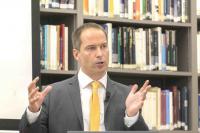
How Can Tribalism, Fuelled from Above, Eat up Democratic Norms?
According to the rules of traditional, mainstream politics, you are losing popularity if you receive support from a foreign country. In the era of tribal politics, you should not be afraid. How can pernicious polarization eat up democratic norms? A case study on foreign intervention.
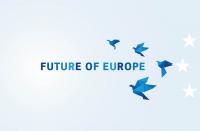
Give Strasbourg to the Citizens!
A priority of the newly appointed European Commission is "a new push for European democracy," giving citizens "a stronger role in decision-making." The centerpiece of the workprogram laid out by the new president von der Leyen is the Conference on the Future of Europe, to run for two years from 2020 to 2022, and in which citizens should participate. The debate on how this conference ought to be organized, what topics should be under consideration, and what should then happen to the recommendations that emerge has been ongoing for the past months, and must soon reach a conclusion if the Conference is to be launched on the 9th May 2020. The French and German governments have produced a "non- paper" on the organization, timescale and issues of the Conference and the European Parliament a briefing on the background; the European Policy Centre has a blueprint for how the Conference ought to work; the Bertelsmann Stiftung has weighed the advantages and disadvantage of different models; and the ECI campaign has its proposal to introduce a Europe wide referendum at the end of the Conference. The European Parliament voted on a plan excluding civil society from a seat in the plenary of the Conference, and the plans of the European Commission are not more encouraging. Over 100 academics have signed a joint letter expressing severe reservations about the current plans, and suggesting alternatives.
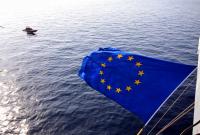
QMV and the Lasting Dream of a Single EU Foreign Policy
Around 80% of EU legislation is adopted by qualified majority vote (QMV). Over the years, it has become the ‘standard voting method’ in the Council. One notable exception is the area of Common Foreign and Security Policy (CFSP). In this field, still at the heart of national sovereignty, there are only few exceptions from unanimity. The previous European Commission proposed extending the use of QMV within the CFSP. Commission President Ursula von der Leyen promised to pursue this initiative. She tasked High Representative for Foreign Affairs and Security Policy/Vice-President of the Commission Josep Borrell to use the Treaty clauses allowing for a gradual extension of QMV. The rationale behind this is simple: the EU needs more efficient decision-making procedures if it is to play a role in global affairs and act in a timely fashion. This rationale has become ever more compelling in recent years. There have been many examples where one or few member states prevented, delayed or diluted the EU’s common voice or foreign policy action. Many of these situations did not reflect unbridgeable divisions between the member states, but rather parochial interests regarding unrelated dossiers or external pressure by third countries.
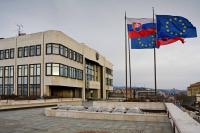
Slovak Elections 2020: Unexpected Implications of the Expected Victory
On 1 March, 2020, Slovakia came to the forefront of the world media information services. On this day, the results of parliamentary elections were announced which meant a broad redrawing of the country's political map. Opposition secured the overwhelming victory over the former dominant ruling party Smer-SD [1] and the former ruling coalition as a whole. The results and the atmosphere awakened memories of the similarly critical Slovak parliamentary elections in 1998, when the then broad-spectral opposition managed to put an end to the power of charismatic leader Vladimir Mečiar and his national-populist government which had led the country into the deadlock of authoritarianism.
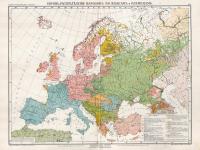
Time for Policy Change on Western Balkans Emigration
The exodus of skilled workers from the Western Balkans has reached such critical levels that governments can no longer keep their heads in the sand.

European Metamorphoses
European democracy is undergoing a metamorphosis, but its new shape is still highly uncertain. If it can be argued that democracy is itself as a regime is always changing and being reinvented, democracy in the European Union has been undergoing a distinctive process of change since at least 2008, when the EU was hit by the global financial crisis without a constitutional settlement to enable it to adequately respond. Unable to robustly coordinate policy responses across either the single market or eurozone in a way that would justly and fairly shield European populations from the effects of the crisis, let alone intervene in the global frame to change the dangerous dynamics of financialized capitalism, the EU as a whole, and its member states individually, have been scrambling to find solutions to almost every political issue that has arrived since this period, whether the topic is migrants, technology, military aggression, climate change, terrorism, or authoritarianism.
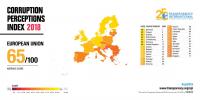
Corruption in Slovakia: Enemy of Democracy, Ally of Extremism
In a recent article in The Guardian Timothy Garton Ash argues that as it was premature to consider the fall of the communist regimes in Central and Eastern Europe in the late 1980s, then triumph of liberal democracy, a beginning of development that would turn this triumph into normal state of society, it would be similarly premature to think today about the triumph of anti-liberal authoritarianism in the world. As a positive example, Garton Ash mentioned the fact that “leading the democratic fightback in Central Europe today is Slovakia, a country that was authoritarian laggard in the 1990s, and has more than its fair share of post-communist corruption in recent years." In this context, Garton Ash writes about the mass citizens‘ protests after the murder of investigative journalist Ján Kuciak and his fiancée Martina Kušnírová in 2018 and recalls the "election this year of a liberal, pro-European president, Zuzana Čaputová." [1]
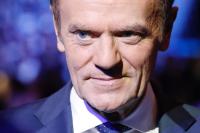
Donald Tusk, Europe’s Liaison Officer
The former president of the European Council has forged a reputation as a no-nonsense pragmatist who has taken on the populists. How will he do in his new role as head of the European People’s Party?
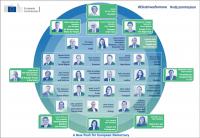
The ‘Geopolitical’ European Commission and its Pitfalls
At the outset of his term, outgoing Commission President Jean-Claude Juncker promised he would lead a "political Commission." Five years later, Commission President-elect Ursula von der Leyen opted for a different framing: She said she wanted to lead a ‘geopolitical Commission’. She thus responded to recent global developments, notably the rise of protectionism, the gradual erosion of multilateralism and the ‘great power competition’ between the US and China. Besides political communication and framing, what does the geopolitical Commission really mean and what are potential obstacles?
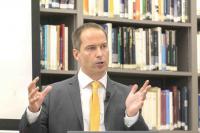
Were Hungary’s Municipal Elections the Beginning of the End for Orban?
Hungary’s recent municipal elections brought surprising gains for the opposition and created a stir in the international press as commentators pondered if the result posed a real threat to Prime Minister Viktor Orbán’s power. It is not unusual in politics to see everyone claiming victory on election night. But the contrast in how the opposition and government assessed the results was striking. Opposition forces talked about an "electoral breakthrough" while politicians of Orbán’s ruling Fidesz party repeated the mantra that Fidesz remained the most popular party by far in a country dominated by orange (the colour of Fidesz).
Who is right? In fact, both were.

EU Enlargement to the Western Balkans is Still Alive
The unfortunate European Council decision of October 2019 not to open EU accession talks with North Macedonia and Albania is just the latest manifestation of fatigue with the EU enlargement process, not only in the Western Balkans but in the EU side too. Yet long before this Council decision, the EU institutions and its Member States had made certain demands for reforms on North Macedonia and Albania in return for the promise of moving forward on their EU accession path. The exasperation felt today is that of empty promises and broken dreams. It has already given rise to alternative scenarios and Plan Bs if EU enlargement to the Western Balkans were not to materialize. Already at the beginning of the Juncker Commission, it had become clear that EU enlargement would be for the long haul. In that sense, ways to keep the momentum for reform and initiatives from the region were welcomed. Nevertheless, the new EU legislature, for all its uncertainties, may be a sign that the dream of a European perspective for the Western Balkans is not over.
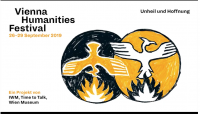
Ivan Vejvoda and Jon Baskin discuss former Yugoslavia at VHF 2019
Vienna Humanities Festival 2019
Hope and Despair in the Former Yugoslavia
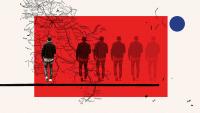
’Too Late’ to Halt Serbia's Demographic Disaster
Serbia is set to lose almost a quarter of its population by 2050 as the young and the skilled emigrate in search of work.

Now We Know Who Wants Slovakia’s Fascists to Survive
A murder investigation has, by chance, cast disturbing light on an important court ruling that kept a fascist party in political business.
Could an Illiberal Europe Work?
Populist rightist parties have made dramatic gains over the past two decades. They are effectively in charge in Hungary, Poland and Italy and have joined a number of other governing coalitions. About a fifth of the current members of the European parliament belong to these parties and they are well positioned to make additional gains at the May 2019 elections.
Ideas and Causes - And a Small Crusade for the Rule of Law in Europe
"Whenever, looking at my watch, I see the hand has reached the figure X, I hear the bells beginning to ring in the church close by. But from the fact that the watch hands point to ten whenever the bells begin to ring, I have not the right to infer that the position of the hands of my watch is the cause of the vibration of the bells." Leo Tolstoy
Democracy’s Crisis and Renewal, and the Future of the EU
A decade of crises has left the EU bereft of an idea, fragmented internally and challenged externally. Past platitudes assumed that shocks would push Europe to bounce back and find a new purpose. This time, an opposite pattern has become the norm: every crisis has disabled the EU from solving the next one, which inevitably soon arrived.
The Polish Lesson: The EU’s Rule of Law Revolution
In 2018 the dispute over the rule of law in Poland produced a significant breakthrough in the process of the European integration. The Court of Justice of the European Union (CJEU) declared itself competent to deal with complaints about “systemic” violation of the rule of law in EU member states. Moreover, the European Commission decided to use the infringement procedure to halt the destruction of the independent judiciary in Poland. Although EU institutions acted in line with EU treaties, these decisions had a truly revolutionary character. In the past, the Commission and the CJEU were unwilling to make use of treaty provisions that would have allowed them to intervene when the independence of the judiciary in an EU member state was at risk.
The Generation that Betrayed Hungarian Democracy
How did bright-eyed young liberals become populist reactionaries? A former lawmaker explains the transformation of Hungary’s ruling Fidesz party.
How Did Europe Lose Its Way?
The EU’s problems have been widely commented on. From the rise of the far right to the problems of the Eurozone and the challenges of the fourth industrial revolution, many have argued that the union is under strain like never before. As the first ever decision of a member-state to leave the EU, Brexit has brought these issues into sharper focus.

Bye-Bye, Balkans: A Region in Critical Demographic Decline
Former communist countries in Southeast Europe face catastrophic depopulation, with far-reaching social and political consequences.

Can Europe Help the Balkans Keep its Young Emigrants?
High emigration rates are doing massive damage to the prospects of the Western Balkans — and one question is whether a stronger EU perspective can reverse this outflow.
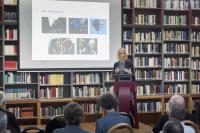
Still an Impossible Job: Challenges and priorities for EU’s next High Representative
2019 marks the tenth anniversary of the ratification of the Lisbon Treaty. One of its key promises was a more coherent, effective and visible Common Foreign and Security Policy (CFSP). No single innovation encapsulates this promise more than the creation of the post of High Representative for Foreign Affairs and Security Policy and Vice-President of the European Commission (HR/VP).
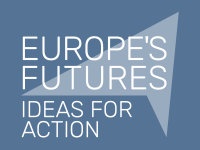
Europe’s Futures Colloquium 30 September 2019
First in the series of Europe’s Futures colloquia took place at the Institute for Human Sciences each Monday in September 2019.
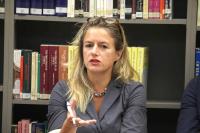
Europe’s Future Depends on Reinventing its Democracies
As the EU’s new leadership team braces for the challenges of the next five years, the bloc needs to rethink what political participation really means.

All Borders Are not Made Equally: The Irish 'Border Problem' and European Territory
If the Brexit referendum showed one thing, it is that the critics of the European Union have a much easier time making their case than the defenders, despite history clearly being on the side of the European Union. When it comes to the Irish border, there are reasons to fear a similar situation.